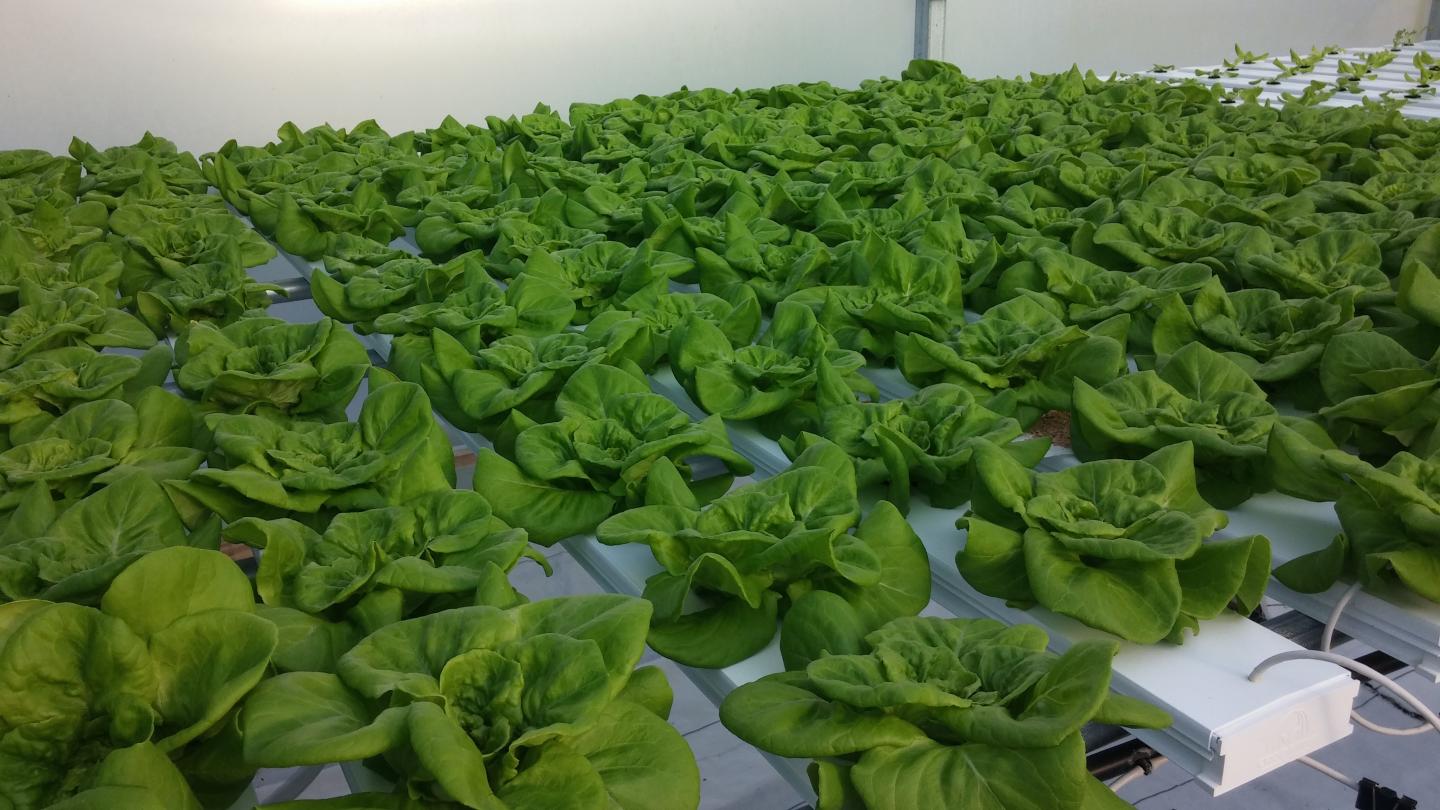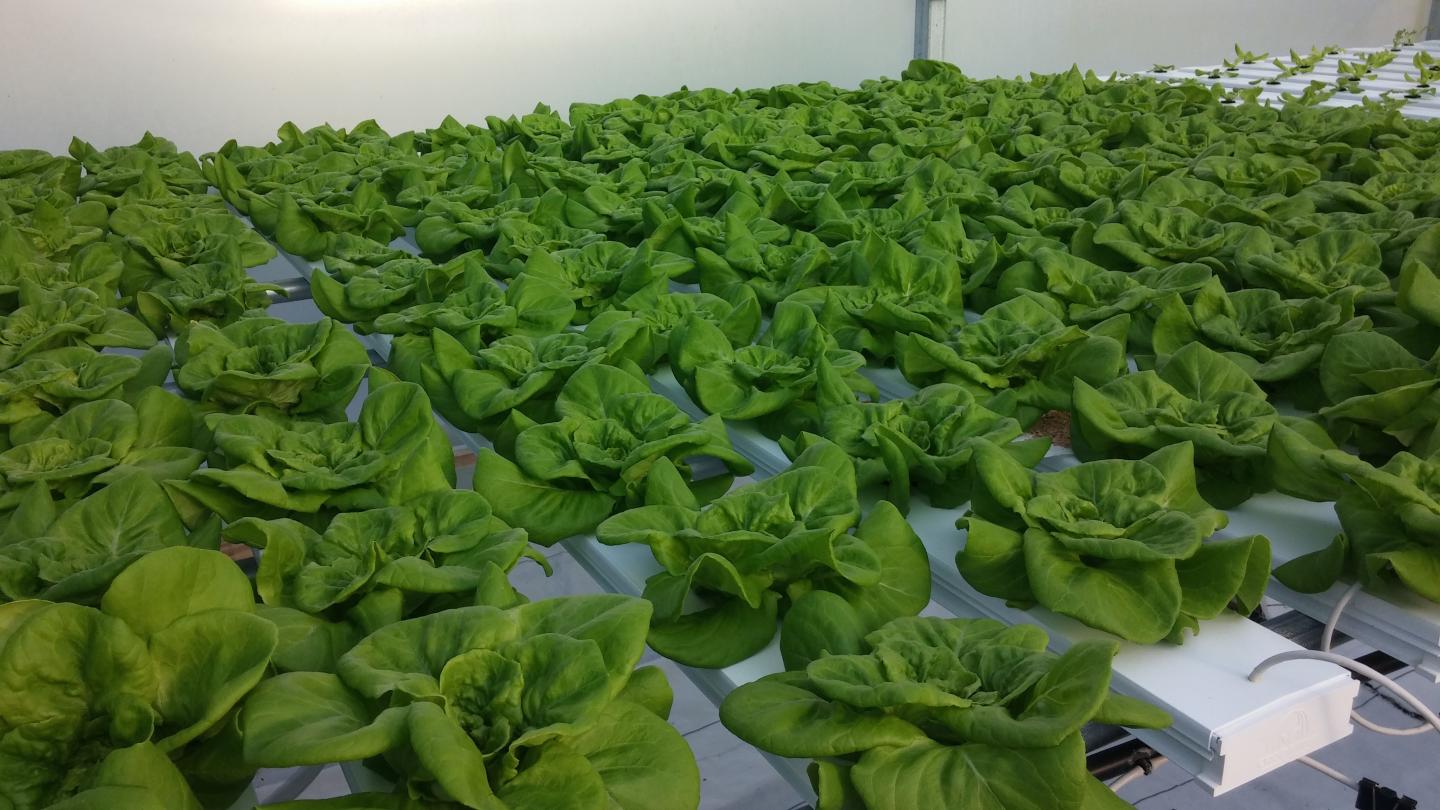
Credit: Photo by N. Bumgarner, courtesy UTIA.
KNOXVILLE, Tenn. — Careers in agriculture and natural resource management are booming, but today's urban and suburban kids are frequently unaware of the opportunities available to them in these fields because they lack awareness of the breadth of these studies. A new round of grants from the USDA National Institute of Food and Agriculture is designed to turn around this trend, and educators with the University of Tennessee Departments of Plant Sciences and Agricultural Leadership, Education, and Communications (ALEC) are among the grant recipients.
Natalie Bumgarner, an assistant professor and UT Extension specialist in Plant Sciences along with Jennifer Richards, Carrie Stephens and Daniel Sarver from UT, will lead a Tennessee-based project that will develop a curriculum and professional development products for educators that are designed to encourage students in grades 9 – 12 to pursue food, agriculture, natural resource and human science (FANH) careers through engaging and experiential instruction. Specifically, the UT Institute of Agriculture educators will model how teachers can use soilless vegetable growing systems constructed in controlled environments as a tool to enhance secondary education studies in chemistry, biology and agriculture science.
"Experimental and educational soilless production systems can be scaled to fit a range of locations depending on the educational needs, instructor and setting," said Bumgarner, who intends to use the grant to help equip high school teachers and 4-H agents by training them in using a curriculum that can address state teaching standards while engaging students.
Bumgarner intends for the growing systems to increase student knowledge of scientific inquiry, hypothesis development, and data collection linked with food crop production as well as provide hands-on learning activities regarding food production and real-world problem solving. Her colleague Daniel Sarver said, "This grant program fits nicely in with the goals of the 4-H STEM program in Tennessee, which is to stimulate youth interest in STEM and FANH careers." STEM programs work to enhance educational efforts in fields related to science, technology, engineering and mathematics.
"The critical long-range goal is to prepare students to select and succeed in FANH careers and contribute to future agricultural productivity and resiliency," Bumgarner states. "We hope to help grow the next generation of producers and scientists who are acutely aware of the challenges facing the world's food and agricultural systems. We need more young people to become skilled in the technologies and science that may result in solutions to the problems of sustainably producing food, fuel and fiber for increasing populations."
Bumgarner adds that the curriculum should also influence students who choose other career paths. "I hope every student will become an educated and thoughtful consumer who is aware of the roles that agriculture and natural resource management play in our economy and society," she said.
###
The two-year, $45,000 grant is being made through NIFA's Secondary Education, Two-Year Postsecondary Education, and Agriculture in the K-12 Classroom Challenge Grants (SPECA) program. All SPECA projects are designed to advance excellence in education and encourage more young Americans to pursue and complete a baccalaureate or higher degree in the FANH sciences.
Through its mission of research, teaching and extension, the University of Tennessee Institute of Agriculture touches lives and provides Real. Life. Solutions. ag.tennessee.edu
Media Contact
Patricia McDaniels
[email protected]
615-835-4570
@UTIAg
http://ag.tennessee.edu
############
Story Source: Materials provided by Scienmag





